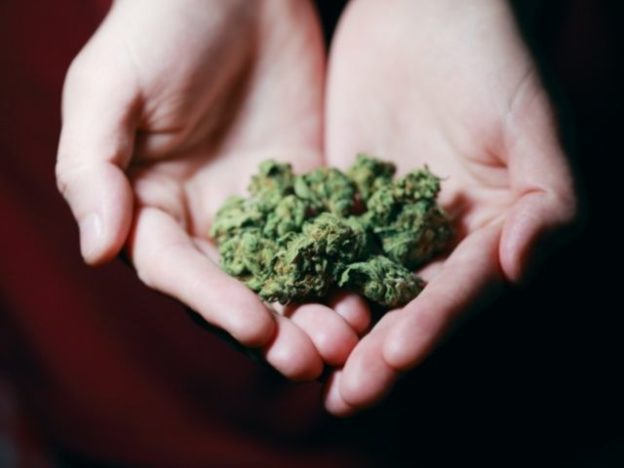With the proliferation of medical marijuana rolling into the movement for recreational marijuana, this seems to be one of the questions of the day – is marijuana addictive? As a general blanket statement, the answer is yes, at around the same rate that alcohol is addictive. The CDC’s report on the health effects of marijuana states that around one in 10 marijuana users will develop addiction, but points out that the number is much higher among users who are under 18 (details below). Long-term marijuana use is one of the fastest growing forms of drug addiction in the United States.
What constitutes a marijuana addiction
Many people point out that marijuana abuse doesn’t have the same severity of withdrawal symptoms as substances such as heroin or alcohol. However, this doesn’t mean that marijuana isn’t addictive. We would like to point out that many “addictive” substances and behaviors don’t necessarily leave the user in cold sweats like heroin does. Take gambling, shopping, or eating for example. Alternatively, most experts would refer to an addiction as the inability to stop engaging in a destructive behavior even though it is causing some kind of physical or psychological harm to the user.
On a clinical level, the diagnosis “cannabis use disorder” is used. This term is taken directly from the Diagnostic and Statistical Manual of Mental Disorders, Vol 5 (DSM-5). The manual states that a cannabis use disorder is a mental health disorder constituted by use of cannabis for at least a one-year period, with the presence of two or more symptoms. These symptoms can include tolerance for the drug, withdrawal from the drug, or failed efforts to cut back / quit, among others. Withdrawal from cannabis typically includes:
Marijuana withdrawal symptoms
- Decreased appetite
- Irritability
- Sweating or chills
- Mood swings or feelings of depression / isolation
- Cravings for marijuana
- Inability to focus
- Insomnia
Yes, marijuana is addictive. With the recent surge in marijuana use in the United States, cases of marijuana / cannabis use disorder are on the rise. However, it appears that the rate at which individuals become addicted to marijuana is not increasing – simply the number of users has gone up.
What the research says about marijuana addiction
Let’s take a deeper look into some of the research and data available on the topic of marijuana addiction:
- A 10 year study face-to-face interviews conducted in surveys reported that among marijuana users, almost 3 in 10 developed symptoms of cannabis use disorder.
- Data from 7,389 past-year cannabis users showed that the odds of transitioning from recreational use to dependence was just under 1 in 10. This is a similar rate that we expect alcohol users to transition to dependence.
- This study broke down the likelihood of developing cannabis use disorder by age and found that past-year cannabis users are 4 to 7 times more likely to develop dependence if they are under the age of 18.
- The National Institute on Drug Abuse’s Monitoring the Future survey noted that around 2019, there was a sudden increase in marijuana use among the younger grades, and that teens’ perceptions of the risks of marijuana use has declined in recent years.
Marijuana addiction symptoms & signs
In our drug and alcohol treatment programs for youth, we often describe how marijuana / THC users will “scrape the bottom,” rather than “hitting a bottom” in the traditional sense. We also observe that marijuana is the most popular drug used by teens, by far. Whereas users of other illicit drugs such as heroin or methamphetamine will often experience hard consequences very quickly, marijuana users tend to slowly let their lives slip, such that they themselves are unaware of the effects it’s having on them. Some of the clear marijuana addiction symptoms are:
- Unsuccessful attempts to stop using the drug or cut back on marijuana or THC use.
- Incrementally giving up activities, hobbies, or endeavors, likely due to a marijuana-induced amotivational syndrome.
- Continuing to use marijuana after developing awareness of the destructive consequences. This is one of the most classic signs of addiction.
- Tolerance for the drug, or needing to use more and more to get high over time.
- Problems with memory and trouble learning.
Treatment options for marijuana addiction and next steps
If you or a loved one are struggling with marijuana use, we recommend that you start with a consultation with a professional. This doesn’t necessarily mean a trip to rehab – it’s simply to get an objective perspective on the level of use, as well as some next steps. Good places to start would be with a healthcare professional trained in addiction, an addiction counselor, or a drug and alcohol treatment program such as our teen and young adult drug treatment programs in Tempe, AZ and Sacramento, CA. As always, feel free to call our program or contact us if you have questions or would like to request an evaluation.





